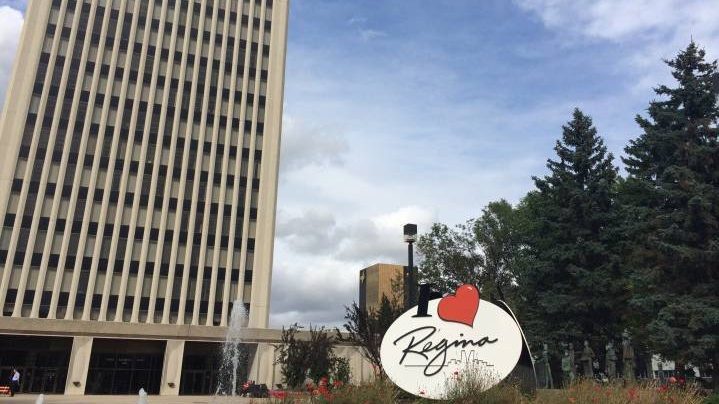The City of Regina is considering a number of cuts to services and increasing property tax in order to fill a $10 million budget shortfall, but they will not draw from the city’s reserve funds.

This, despite repeated suggestions from the provincial government to do exactly that.
“We know the municipal sector has been able to put away millions of dollars in reserves in part because of the revenue sharing from the province,” Premier Brad Wall said during Monday’s Question Period.
“Some of them say, ‘well, that’s our rainy day fund’. Well, now is the time to use it as we work towards a new revenue sharing formula.”
READ MORE: Proposed tax increase to cover Regina’s budget shortfall
To make up for $8 million in revenue lost with the elimination of grants-in-lieu payments from SaskPower and SaskEnergy, plus $2.1 million lost due to a decline in PST revenue, the City of Regina is considering eliminating programs like Play Escapes, Snow Busters, plus yard, hazardous and treecycle waste collection. Also being considered is the closure of Regent Park Golf Course and the Leslie Lawn Bowling Greens.
A mill rate increase of 2.5 per cent, in addition to the 3.99 per cent originally approved, was also recommended.
So why are municipalities so hesitant to dip in reserve funds as the premier has suggested?
Former Regina mayor Pat Fiacco, who utilized those reserve funds for major infrastructure opportunities during his time in charge, believes the city is making the right decision in avoiding dipping into reserves.
“Those reserve funds are earmarked for future infrastructure projects that are going to be required,” Fiacco said.
“I don’t think it’s fair for the provincial government to tell a municipality, ‘use your reserve funds.’ I don’t think that’s a fair statement.”
Fiacco added that utilizing reserve funds even once to alleviate short-term financial pressures could work against the city.
“There’s a bit of a risk looking at a one-time dip into the reserve fund when you don’t know what the future holds in respect to grants-in-lieu from the provincial government and revenue sharing, period.”
City council will deliberate the recommendations made at City Hall at 5:30 p.m.
- Alberta to overhaul municipal rules to include sweeping new powers, municipal political parties
- Norad looking to NATO to help detect threats over the Arctic, chief says
- Grocery code: How Ottawa has tried to get Loblaw, Walmart on board
- Canada, U.S., U.K. lay additional sanctions on Iran over attack on Israel




Comments